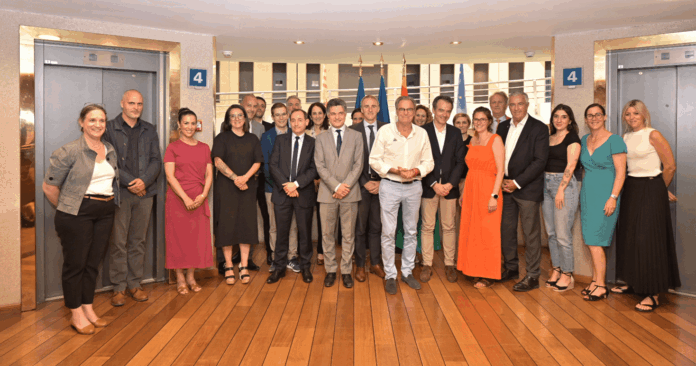Meeting in Marseille, the Board of Directors of Solideo Alpes 2030 has approved several major advancements for the preparation of the 2030 Winter Olympic and Paralympic Games. The focus was on governance, technical analysis of sites, and the initiation of preliminary development studies.
The Board of Directors of Solideo Alpes 2030 was held last week in Marseille. This public company is responsible for managing the Olympic facilities for the 2030 Winter Games in the French Alps. Co-chaired by Renaud Muselier, President of the Provence-Alpes-Côte d’Azur Region, and Fabrice Pannekoucke, President of the Auvergne-Rhône-Alpes Region, the meeting marked the achievement of a significant milestone.
The meeting started with the creation of an audit committee. This body will support the board of directors in analyzing financial, legal, and operational risks. Regional councilor Annabel André, elected from Haute-Savoie, has been appointed, pending approval from regional bodies.
Moreover, the Board reviewed the various proposed sites for the Olympic bid. Technical and financial aspects were at the heart of the discussions. This analysis is intended to prepare for future development decisions. At this stage, the final map of the sites has not been determined yet.
Two concrete decisions were made. The Board approved two project management transfers to allow the commencement of initial studies. The first concerns the future “Rapid Olympic Line” between Briançon and Monêtier-les-Bains. This will be a lane reserved for public transport during the Games and later converted into a High-Level Service Bus for residents.
The second project concerns the La Grande Plagne resort. A valley lift will be studied there to connect the resort to the rail network, as an alternative to car usage.
A tight schedule, affirmed regional commitments
This Board meeting takes place in a context where deadlines are tight. Solideo, led by Damien Robert, must complete complex works within short timeframes. In Nice, for instance, the consultation for the construction of the Olympic village has been launched.
The planned investments amount to 800 million euros. They aim to meet the Games’ needs while leaving a legacy for the territories. The stated objective is to avoid creating temporary infrastructures without future use.
Renaud Muselier emphasized that “Solideo Alpes 2030 is concretely stepping into its mission: delivering the Olympic infrastructures on time, within budget, and with lasting impact.” For him, a collective dynamic is now in place.
Fabrice Pannekoucke, for his part, reminded that “the commitment of the Auvergne-Rhône-Alpes Region remains total for making the Games a sustainable development, innovation, and outreach lever for the territories.” He stressed the importance of method and rigor in managing the project.
These announcements follow another important institutional meeting. On June 30th, in Briançon, François Bayrou chaired an interministerial committee. Protocols were signed there, notably on transport and financing aspects.
The coming weeks should help detail the outlines of future developments. Solideo continues to make progress, supported by regions, local authorities, and state services. The perspective of the 2030 Games acts as a catalyst. The decisions made pave the way for the project’s operational phase.


